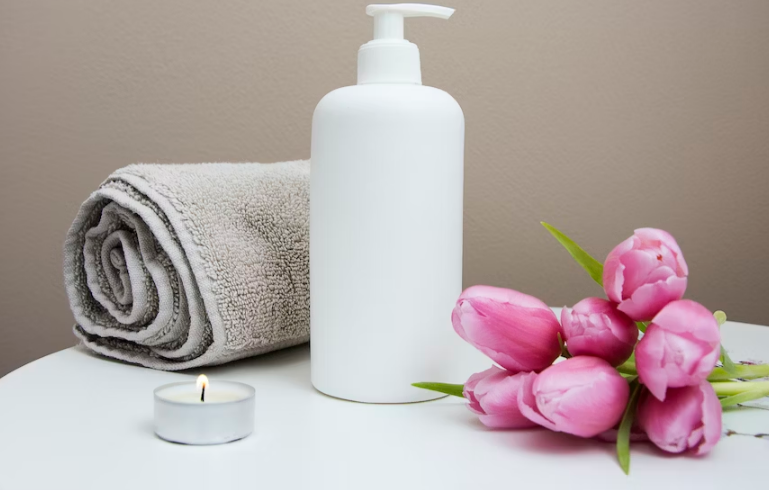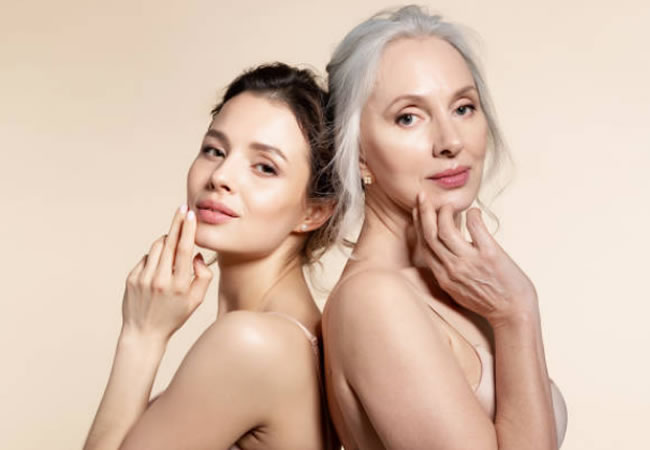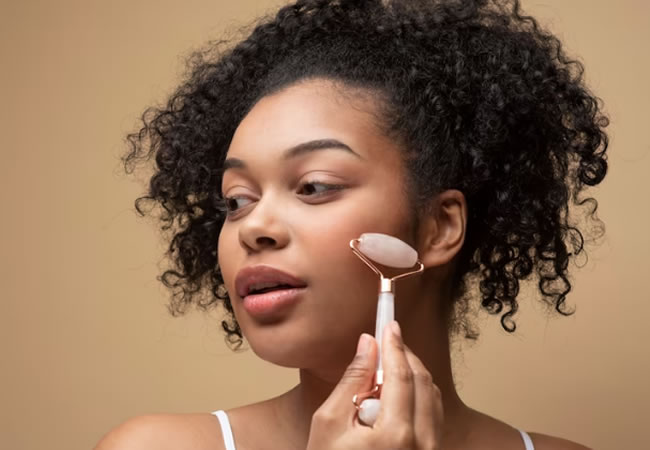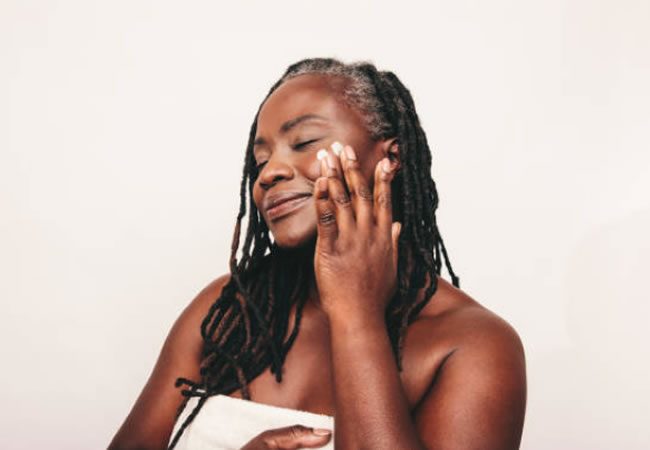The beauty industry has a lot of skin care myths and facts. It is no longer news that every single human being on planet Earth is concerned about their skin, which makes the demand for skin care products relatively high. Because of this, everyone in the skincare and beauty market is doing everything possible to turn this very large audience into profit.
This game of interest, by all means, has led to too many lies told in the bid to make sales. People are tired and disappointed by all these lies.
In this article, we will look at some of these myths and facts, and how they impact the lives of beauty enthusiasts.
Just hang on tight
Let’s get started ……….
Skincare Myth #1
Pores open when you put warm water on your face and close when you put cold water on your face!
This myth has been around forever, and no one has been able to do anything about it because it refuses to die. You will see lots of advice all over the internet telling you to use a warm cloth on your face before cleansing to open up your pores so that you can get inside them and clean them out, and then afterward, you’re meant to splash cold water on your face or even rub ice over your face to close all your pores up again.
This comes from the fact that muscles do work this way… warm temperatures relax muscles and cold temperatures tensed your muscles up. This is why the hairs on your skin stand up when it’s cold and relax back down when it’s warm.
The problem here is that the muscles that pull your hair up and down the erector pili muscles cause goosebumps, but they don’t control whether your pore opens or closes. The opening will move back and forth but it doesn’t open and close.
There aren’t any muscles that control the pore opening. It’s just a hole in your skin. The problem with switching between hot and cold water is that these extreme temperatures will irritate your skin, and irritation is linked to a lot of bad things in your skin, like pimples.
Therefore, don’t put your skin through that sort of treatment. A bit of warmth can help oils become runnier so that they come out of your pores more easily, and a bit of cold can be good for calming down inflammation, but if you try to push between really hot and really cold temperatures, this will just irritate your skin for no good reason.
Learn More!
How to Determine Your Skin Type
Vitamine Skincare Tips & Tricks
Skincare Myth #2
If You Clean Your Skin More Thoroughly, It’ll Help You With Your Acne Pimple!
Making your skin look uneven and having dirt on your skin can cause acne. That is why it’s pretty obvious that if you clean your skin more, it’ll stop acne from forming right well. No cleaning usually doesn’t fix your acne.
Four main factors will contribute to your acne.
These are: –
- Excess Oil Production
- Inflammation
- Overgrowth of Specific Bacteria
- Clogged Pores
Cleansing will help with oil production and the overgrowth of bacteria and clogged pores if you’re using a product that is about to clog your pores. But if you are cleansing incorrectly such as using cleansers that are too harsh or if you overdo your cleansing, this can make those four factors worse.
An example:
If you use a high pH cleanser this can lead to inflammation and overgrowth of acne bacteria.
If you use a harsh and irritating cleanser this can lead to inflammation and can increase your oil production.
You only need to cleanse once or twice a day with a gentle cleanser (affiliate link) that’s the right pH and contains gentle surfactants.
Read More!
Postpartum Skincare Tips & Tricks
How to Tighten Loose Skin Naturally
Skincare Myth #3
Natural Skincare is Better for Sensitive Skin
A lot of natural beauty brands push the idea that natural beauty products are gentler and more on your skin. that they’re going to be great for sensitive skin. This myth was touched upon before in a seminar on “natural” and “chemical” beauty and skincare products. The first thing we need to clear up is that everything is a chemical.
One of the big misconceptions about nature is that nature isn’t quite as nice and idyllic as they usually make it out to be. For example, if you have had a fever like me, you will know that nature is evil and makes you sneezy.
If you’ve been stung by a bee or if you’ve touched poison ivy or stinging nettles, then you’ll have been on the receiving end of some of nature’s wrath. Now if you think of the things that people tend to be deathly allergic to, like bee stings, peanuts, wheat, fish, and milk,
These tend to be natural things in which nature has evolved to defend itself, and at the same time, we’ve become more allergic to more things. In this case, synthetic products tend to be better for sensitive skin.
Natural extracts also tend to be mixtures of complex chemicals, and there’s a lot more variation in them as well.
For example, an apple extract from a ripe apple is going to have different chemicals in it than an apple extract from an unripe apple, and this will be different from an extract from an apple that’s been left to rot in a warehouse. Natural ingredients also often contain hidden fragrances, which can make people pretty allergic to synthetic products.
On the other hand, they are usually simpler, and they have ingredients that are just a single chemical. They’re also less affected by things like the season and where that extract comes from.
This means that it will be a lot easier to predict how your skin will react to a synthetic product, and that’s why dermatologists tend to recommend synthetic products for people with sensitive skin.
You May Also Love These!
Best Makeup Tips for Oily Skin
Skincare Myth #4
Chemical sunscreens need to absorb and activate before they start to Work!
There’s a widespread myth that chemical organic sunscreen ingredients need to absorb and bind your skin and then they need to act before they start working and absorbing UV but physical or inorganic sunscreens that contain zinc oxide or titanium dioxide don’t need this waiting time.
This means you see a lot of advice saying that you need to put on chemical sunscreens earlier and wait for 20 minutes before going out into the Sun. In contrast, you can put on a physical sunscreen and it’ll start working immediately.
This myth also means that you’ll see advice telling you that you need to apply chemical sunscreens on bare skin, otherwise, they won’t work but physical sunscreens don’t need bare skin and you should put them on top of your makeup.
This myth probably partly comes from the fact that instructions on sunscreen packaging often tell you to apply 20 minutes before going into the sun. Now let me make it clear here that the reason for this isn’t because the sunscreen needs to activate.
Sunscreen ingredients, both chemical and physical are active and capable of absorbing UV even before they leave the bottle. Here I smeared some sunscreen onto white paper and they’re absorbing UV from the black light immediately after I’ve applied it.
The reason for this 20-minute wait time is that the sunscreen needs to spread and form a film. so it doesn’t get rubbed off. Sunscreens are emulsions that contain droplets of water in oil so until the sunscreen comes together to form an even film it can give spotty protection. if it hasn’t formed a film and you move around too much, it can rub off and again, you end up with incomplete protection.
This wait time for the film to form is the same for both chemical and physical sunscreens, and after this film forms, both chemical and physical sunscreens are mostly sitting on top of the skin in uniform layers hopefully protecting the skin underneath.
This means that you can treat chemical and physical sunscreens the same way. You don’t need to apply chemical sunscreen as the first layer and physical sunscreen as the last layer, and you don’t need to wait for one type and not the other.
Related Articles!
Best Skincare Products for Winter
Skincare Myth #5
People With Good Skin Have Good Skincare Routines!
It’s tempting and embarrassing at some point to see someone with good skin and ask them for their routine to copy or follow all their tips for you to get skin like this, but unfortunately, good skin doesn’t necessarily mean that someone’s got good skincare habits.
One of the biggest reasons that people have healthy skin or healthy bodies, in general, is genetics. Good skin is based first on genetics. It’s a bit like asking someone tall how to get taller by following their routine probably isn’t going to make you any taller.
Some people can throw just anything at their skin and will still be smooth and clear. That’s why really bad ideas like toothpaste to clear up spots still get rave reviews.
Pimples will clear up on their own in a few days if your skin is good and if you only have one pimple and you put toothpaste on it, then you don’t know how long it would have taken for it to heal with or without the toothpaste, so it looks like putting toothpaste on it helped it heal.
There’s a popular saying in science that “correlation is not causation.” This means that, if you do something and something else happens afterward, it doesn’t mean that the first thing caused the second thing.
For example, if my alarm goes off in the morning and then I miss my train, that doesn’t mean that my alarm caused me to miss my train. But it’s tempting to see things as related because humans like things to make sense.
This is one of the big issues with anecdotal evidence, which is when people give testimonials saying that something worked for them a lot of the time.
Things aren’t related, and a lot of conditions get better on their own without interference, so this goes for skincare as well as other areas of health, like waiting for a cold to get better. So cold remedies are, a lot of the time just old wives’ tales.
… CHECK OUT MY RECOMMENDATIONS….
Hope this was helpful and please have you any other myths? Feel free to leave me a comment below and tell me the myths you were most surprised to find out.






